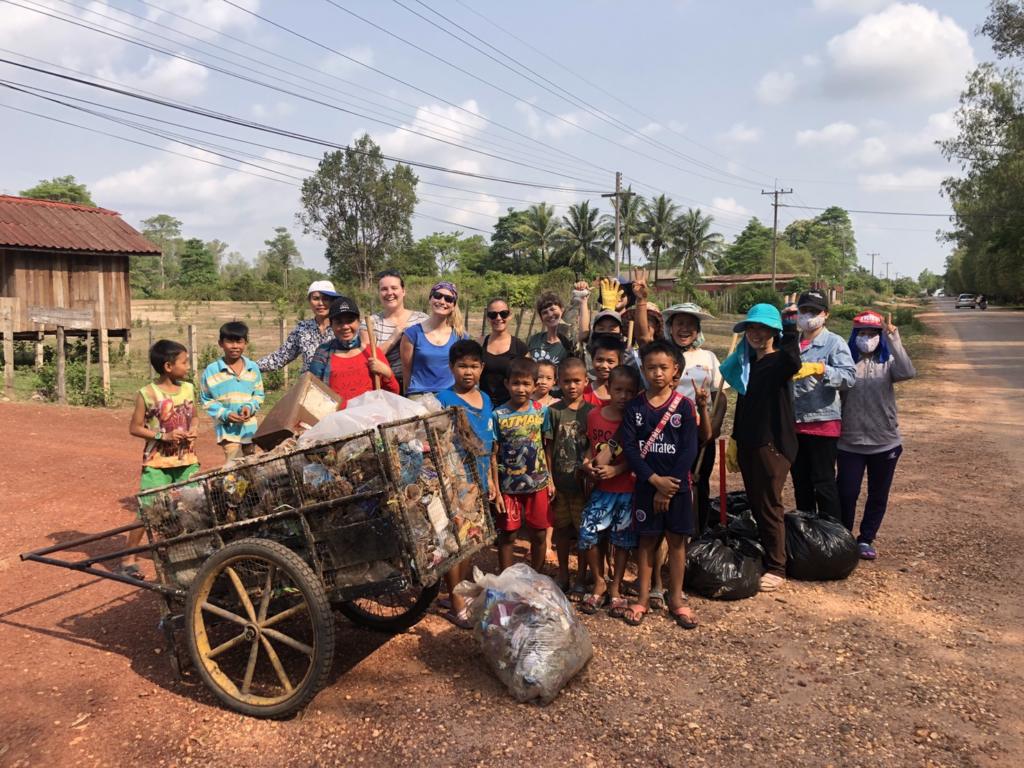Our mission is to stop wildlife crime in Laos, a goal with the sustainable use of natural resources at its very heart. Our fundamental belief is in long term sustainable and responsible ecotourism for the country.
We place our volunteers exclusively in ethical no-contact roles with the animals they will work with, to ensure that wildlife stays wild in instinct. Their role is instead to intellectually stimulate animals through enrichment activity support as most of the animals at the refuge are safely returned to the wild after a period of rehabilitation with us, not kept on site for profit. Our staff are international experts in ethical animal-human interactions.
Unfortunately there are relatively limited sources of funding in taking good care of endangered animals in southeast Asia, and in fact there tends to be higher revenue in tourism which can have a detriment to animal well-being. We lead by example, and show our volunteers the benefits they can have to an animals life, through activities designed to serve the animal’s desires, not the volunteer’s desires.
Investment in Laos, our home

LCTW staff and volunteers pick up litter in the village
Our funding model is sustainable and looks to reinvest international travel revenue into subsidised environmental education for Laos people about the wildlife surrounding them, and through clear demonstrations that ethical ecotourism can work.
We feel strongly that we must sustainably provide for our visitors. If our tourism requires massive natural resource inputs in food, transportation, and housing then we are sacrificing our long term mission of preserving our environment. Therefore, sustainable accommodation and practice on site underpins everything we do.
As a Lao non-profit we are proud of the high number of Lao staff we employ, with a 10:1 local to international staff ratio and the majority of our staff being local women. We are proud to be a good employer, and reinvest in our home through all relevant taxes.
Find out more about our approach to sustainable ecotourism
Sustainability through responsible land use
- 70+ acres of our site are designated as a wildlife reserve for free roaming elephant.
- We discourage clear-cutting of grass in our animal spaces and discourage the use of monocultures, creating natural tall grass conditions for animals.
- Keeping our wild areas as green as possible helps contribute to preventing desertification, soil erosion and other water runoff issues.
Sustainability through responsible material use
- We constantly look for new ways to decrease waste and sustainably source inputs needed for the zoo, such as the development of plans to implement a browse plantation, a sustainable bug breeding house, and the use of ecobricks in our future building plans.
- We have an extensive in-house recycling programme, as everything from boxes to bottles can be repurposed into enrichment activities for the animals on site. We are currently expanding our recycling programme, and now provide a recycling outlet for members of our local community to keep our wider local area as waste-free as possible.
Social impact through livelihoods
- We have high standards at LCTW and are proud of our extensive training and skills sharing programme for local staff. We provide training and retraining in EAZA and AZA standards for animal husbandry, leading to international knowledge transfer and improving job skills and long term employability. This knowledge transfer also brings long term high quality animal care to the wider job market across Laos and southeast Asia as a whole.
- Our local staff to international staff ratio is 10:1, with the majority of our local staff being women. We are proud to bring quality employment opportunities to the people of Laos, including ethnic minorities, and breaking down gender barriers in the workplace.
- Our site incorporates many local vendors, including restaurants, keeping profits made in our local community here, where they belong!
Social impact through protecting Lao heritage
- Our work aims to protect Lao natural heritage, including endemic and threatened wildlife as well as natural green space, for future generations to learn about and enjoy. This applies both to our rescue and rehabilitation work, but also our conservation work and policy advocacy to ensure sustainability in the long term.
- Specific attention is paid to local tradition in regards to animal spirits, in accordance with local religious practice. A portion of the site has been privately set aside in accordance with local custom to pay respects.
Sustainable Development Goals
The core of our work is intertwined very closely with the Sustainable Development Goals, key targets set by the UN to cooperatively make our planet a world free from poverty by 2030. Here at LCTW we focus our work towards Goal 12 which focuses on responsible consumption and Goal 15, which protects biodiversity and life on land. However, as an actor committed to sustainably bettering our world, our work cuts across nearly every goal, from gender equality to climate action, composting to gender equity assessments, and much more. Learn more about the Sustainable Development goals here.





